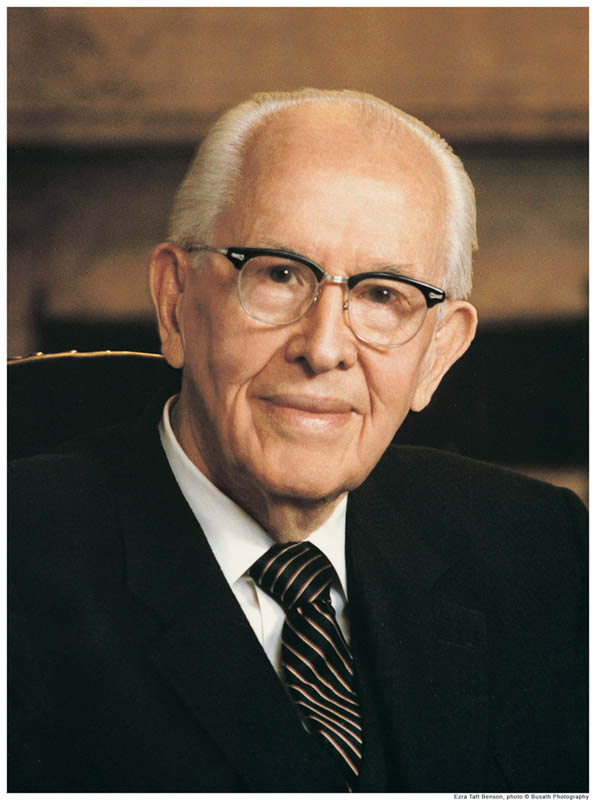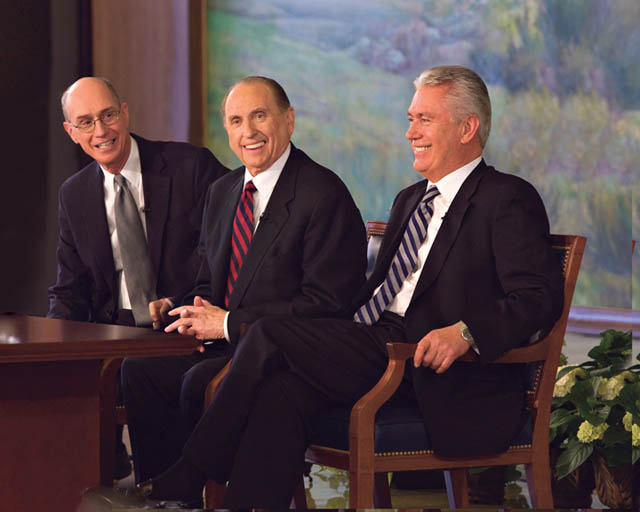A fast search of the Internet will net you millions of Mormon doctrine articles, but many of them contain incorrect information. As a result, a person who really wants to know what Mormon beliefs are may be confused about what Mormon doctrine really is. In this article, we’ll look at sources for accurate Mormon doctrine and then at how to understand how to figure out what Mormons do with what they believe.
When I was looking for a church to join, I learned about each church from official church sources (there was no Internet yet) and from people who loved and believed in their religion. Why did I do that? Jesus said we should treat others as we wish others to treat us. If someone is researching me, I want them to talk to me or at least people who care about me. So, that is how I treated the churches I investigated.
To learn about Mormons, there are two official websites you can study. One is specifically for people who are not Mormon and contains the very basics of Mormon doctrine. It also has profiles of ordinary Mormons. The non-video profiles were written by Mormons who volunteered—I did one myself. I chose what parts of the profile I wanted to complete and wrote what I wanted to write. It was approved and went online. This lets you find out what real Mormons are like and how they view various church teachings. There is a chat room where you can ask questions of missionaries. This is not a place to argue or debate. They are there to answer questions from sincere seekers of information. From this site, you can also ask for missionaries to visit you.
Visit Mormon.org.
The second site is for Mormons. However, nearly all of it is open to the public. You’ll be surprised what Mormons have made public. For instance, you can read both the teacher’s editions and the student editions of all the lesson manuals. This allows you to learn what Mormon doctrine we are teaching our own members, even the children. You can read all the church magazines going back several decades. You can also research Mormon doctrine by topic, reading information actual Mormons use in studying or in preparing lessons and talks to give at church.
Visit LDS.org.
A third way to learn about Mormons is to read material written by people who have strong testimonies of their religion and who love it. This blog is owned by More Good Foundation and is a good source of information about Mormons from a non-official source. You’ll find out how real Mormons see their faith.
Find More Good Foundation websites.
As you’re researching from various sources, you’ll encounter a lot of information. The first thing to remember is that just because something is on the internet or in a book does not mean it is true. If it didn’t come from an official source, it may not be Mormon doctrine. For instance, I read something the other day stating that Mormons worship Joseph Smith. This is an often-repeated claim, but it isn’t true. Do you believe that Moses and Noah were prophets of God? If you believe in the Bible, you probably do. Mormons do, too. However, we don’t worship either one of them, and you probably don’t either. You honor them, respect them, and admire them, but you don’t worship them. Joseph Smith was a Mormon prophet and Mormons see him in the same way they see Moses or Noah. They honor him, but they don’t worship him. If you saw a claim like that, you’d naturally, being an honorable person, want to check it out, so you’d head to an official Mormon website to find out what Mormons really believe. A quick search for Joseph Smith will give you your answers.
Another problem you may encounter is that some types of websites lump all Mormon beliefs together and don’t differentiate between core doctrine and non-core doctrine. They also don’t differentiate between actual Mormon doctrine and cultural beliefs. There are some things some Mormons believe—even leaders—that are not official Mormon doctrine. They are simply opinions and it’s important to know the difference. Finally, these websites also do not understand the concept of a living prophet, and that impacts how you view the Mormon doctrines you discover. So let’s look at that first.
Mormons believe God never intended to stop sending prophets. He said he would do nothing except through his prophets. Jesus also said, just before His death, that He had more to tell them, but that they weren’t ready to hear it yet. Clearly, prophecy was not supposed to end forever. After Jesus died, the apostles continued in their work, clarifying and deciding church doctrine and policy—in other words, acting like prophets. Some were even called prophets, showing prophecy never ended with Jesus’ death. However, eventually they died and then there was a period of apostasy, which ended when Joseph Smith was called to help restore the gospel that had gotten confused over time—the evidence of this is in the fact that there are many churches all teaching different things, even within similar traditions.
Now, if you’ve ever studied the Bible, you know each prophet brought changes to the teachings of the church. Truth doesn’t change, but practices do. Moses taught the Law of Moses. Jesus taught a higher law. That doesn’t mean Moses was a false prophet. It means the people were ready for a higher law. Moses also didn’t teach ark building, but Noah did. Why? Because an ark was part of the necessary practice of religion for that time period, but it was not for Moses’ time period. God knows what we need in each time period and He teaches us accordingly.
Today, prophets work just as they did in olden times. They teach what the people of that time period need to know and do. What was appropriate for Brigham Young’s time might not be appropriate for our modern times, in the same way the ark wasn’t needed in Moses’ time. This means that when you encounter a Mormon doctrine, you need to find out which prophet taught it and whether or not it meshes with what the current prophet says. When I encounter something new, I begin by searching LDS.org for statements on the subject and then start prioritizing them to see if anyone has said anything on this subject recently. There are times when God sees we’re ready for a higher law or deeper understand or that times are different and require different actions. Remember, if Brigham Young said it (because most anti-Mormon sites act like Brigham Young is still the living prophet), you need to find out what Thomas S. Monson, the current prophet, tells us God says on the subject.
Now we need to talk about the difference between opinion and doctrine. It’s important to understand that prophets are people. They are not perfect—only God is perfect. They are entitled to opinions of their own and they often express those opinions. All Mormons are allowed to have personal opinion where God hasn’t spoken, and that freedom extends to church leaders. Today, given the state of communications, the apostles and prophets tend to be more careful in making clear what is opinion and what is actual Mormon doctrine. They sometimes preface speeches made to the non-LDS community as being personal opinion, not doctrine. However, earlier prophets often did not do this. They spoke to the audience before them who understood the difference and so they didn’t clarify the difference.
Journal of Discourses is often a popular source for anti-Mormon sites. This is a non-official source. It is taken from the notes of listeners and not from official manuscripts. The speakers did not vet the re-created talks in anyway. General Conferences in those days was very different than it is today. This semi-annual meeting today is a valid source for doctrine, but in Brigham Young’s day it was informal and listeners could even ask questions. Discussions often ensued and those discussions often included opinions, since doctrine was still being revealed and there were many things the leaders did not know. Brigham Young is not a valid source for how Mormonism is practiced today, nor is it a valid source for actual formal doctrine. He was the prophet, but he was the prophet for his time, not ours. Mormons study him and quote him, but for current doctrine, they turn to Thomas S. Monson. Journal of Discourses does not always accurately portray what the church believes and may not even be an accurate measure of what was really said.
There is a difference between official canonized Mormon doctrine and opinions. This difference is not always clear to outsiders and is sometimes not even clear to Mormons who may not realize things they’ve always heard are not official doctrine. As an example, there is a so-called prophecy called the White Horse Prophecy. Many Mormons, even today, think it is a real prophecy. However, church research has demonstrated that it is not very likely to be an actual prophecy, due to how it is supposed to have been announced and due to the inability to make the facts fit into a logical sequence. It appears to be something a member taught that caught on. Even some church leaders referred to it. Small portions may be accurate, but most of it is embellishment and the church has said it is not true since about 1918. And yet, many anti-Mormon websites and even some of the media treat it as a real prophecy—but it is not. To figure out what is real, use the procedures described above to find out what the Church has said on the subject in recent times. Another example is that the Church has no opinion on how Jesus Christ was conceived or whether or not He was married. Many Mormons have personal opinions on this subject,but the church has clearly stated there is no official teaching on this subject and never has been. Opinions expressed, even by leaders, were only opinions. This is because those matters have no bearing on our eternal salvation, and revealed doctrine is always revealed for a reason, not just to satisfy curiosity. However, many writers incorrectly presume these opinions represent accurate doctrine. The Study by Topic feature is the easiest way to do find accurate information on specific doctrine. In addition, the Newsroom is a good source for understanding current events in Mormonism.
Finally, it’s important to understand core doctrines. Core doctrines are the ones that impact Mormon lives on a regular basis. They are the heart of Mormon doctrine. Many doctrines, while true, are seldom taught or discussed and are considered very unimportant to Mormons. These fringe doctrines are often the ones most focused on by anti-Mormon sites. When these people try to debate Mormonism with Mormons, they often find the Mormons aren’t really interested in those topics because they are unimportant trivia.
The core doctrines are those taught at Mormon.org. They center around the divinity and atonement of Jesus Christ, the divinity of God and His role as our Heavenly Father, and those things we must know and do to return to God’s presence someday. These core doctrines define Mormonism. Trivia does not. To define Mormonism by non-core doctrine is similar to having someone define you by your eye color—it’s just something that is, not something that defines your core being.
As you research Mormonism, make sure you’re getting the facts, not the perception, and that you’re researching the right topics. The real Mormon doctrine is much more interesting than the imaginary canon!
The late Terrie Lynn Bittner—beloved wife, mother, grandmother, and friend—was the author of two homeschooling books and numerous articles, including several that appeared in Latter-day Saint magazines. She became a member of the Church at the age of 17 and began sharing her faith online in 1992.







